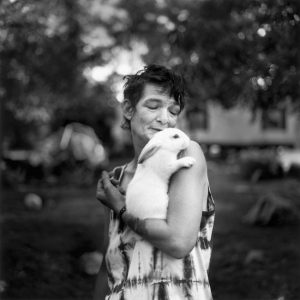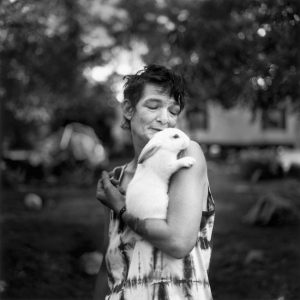I thought it was really interesting how despite “Deer Season” being such a short story, there were a number of perspectives depicted that were all detailed. I was able to get a sense of who each person sort of was relative to this very specific moment in time, although it was made more clear for some characters rather than others, such as with Mrs. Hayes (the art teacher). The use of third-person omniscient and clear framing of time within the short story really helps with giving this effect to the reader. I also got the sense that the perspectives were connected in one way or another. Whether it was how the principal hovered over his secretary in the office, or how Jenny was in the same art class as Jason which was taught by Mrs. Hayes, or even the gunshot which concerns the deer who just happens to be standing outside the window of the art class — the perspective flows from one character to the other, each inhabiting roughly the same time and space, each affected directly or indirectly by the start of deer season.
There was also the juxtaposition of these perspectives as well, which helped show unique relationships and also helped to build the identity of each character from the way they perceived the normalization of the day to the difference in concerns each has to even the views one individual has of another versus the reality of why the observed individual is the way they are. From how the principal thought it was pretty normal for the boys to be missing from school, compared to how his secretary sitting below his hovering figure was more concerned with the attendance and grades of the students missing, and her own kid’s safety during this hunting season. From the way Jenny and Jason took comfort in the absence of the boys from school, although in different and separate ways, and to how Mrs. Hayes took notice of this despite her own private problems. I don’t know if this was the intention of the short story, but I think there are quite a few underlying message presented here of
I don’t know if this was the intention of the short story, but I think there are quite a few underlying messages presented here. One is possibly the normalization of events despite the obvious consequences, such as missing school in order to go hunt deer. Another could be that we’re all connected in this very overarching way to one another, and at the same time, very separate from one another as we each have our own inner turmoils and differing feelings that in most cases divide us, but can sometimes bring us together. I think another message is that despite each fo us being so concerned with our very real and valid feelings or personal problems, the world is much bigger than ourselves, and everything has something that they are going through, even if that may not be completely visible or even unstable to others.





